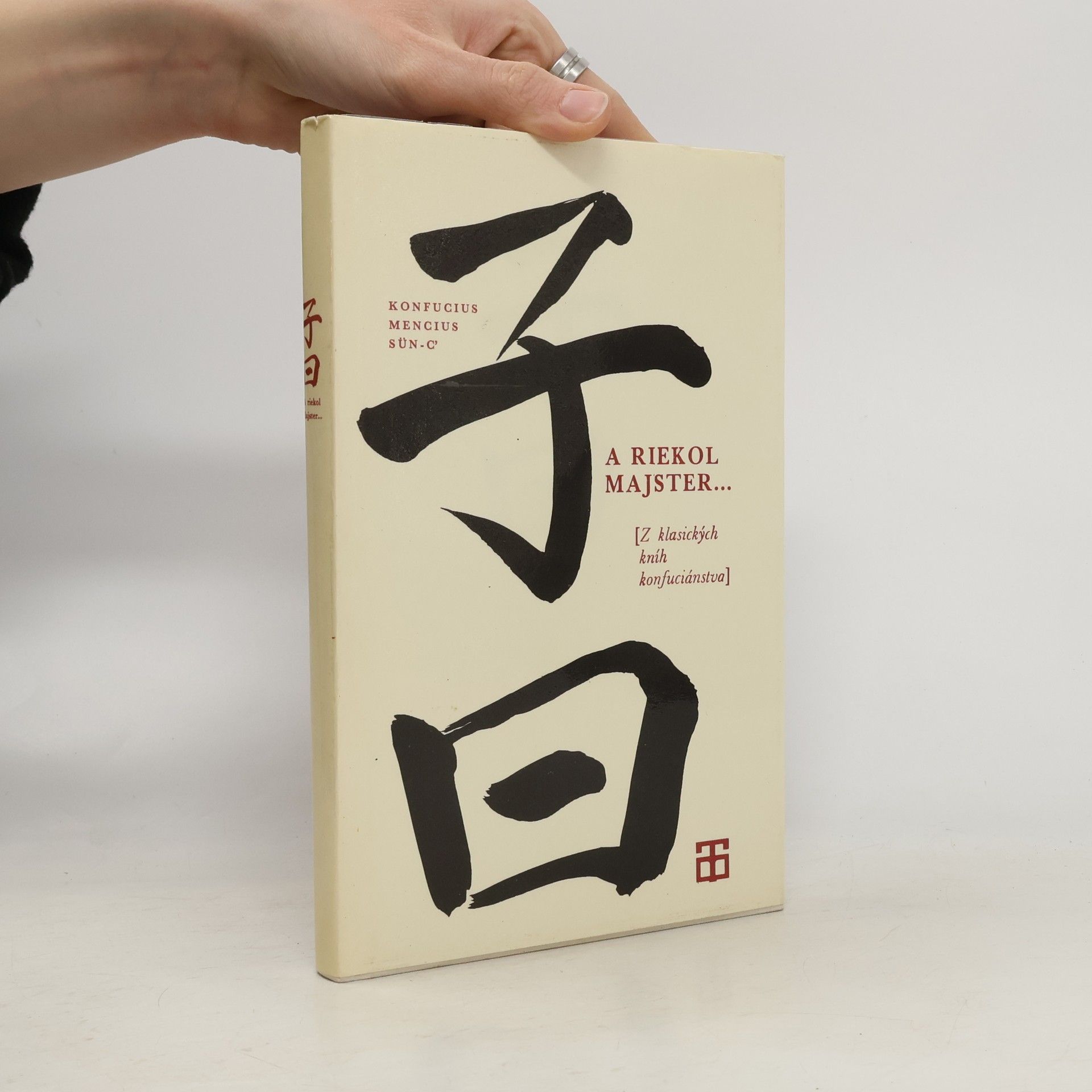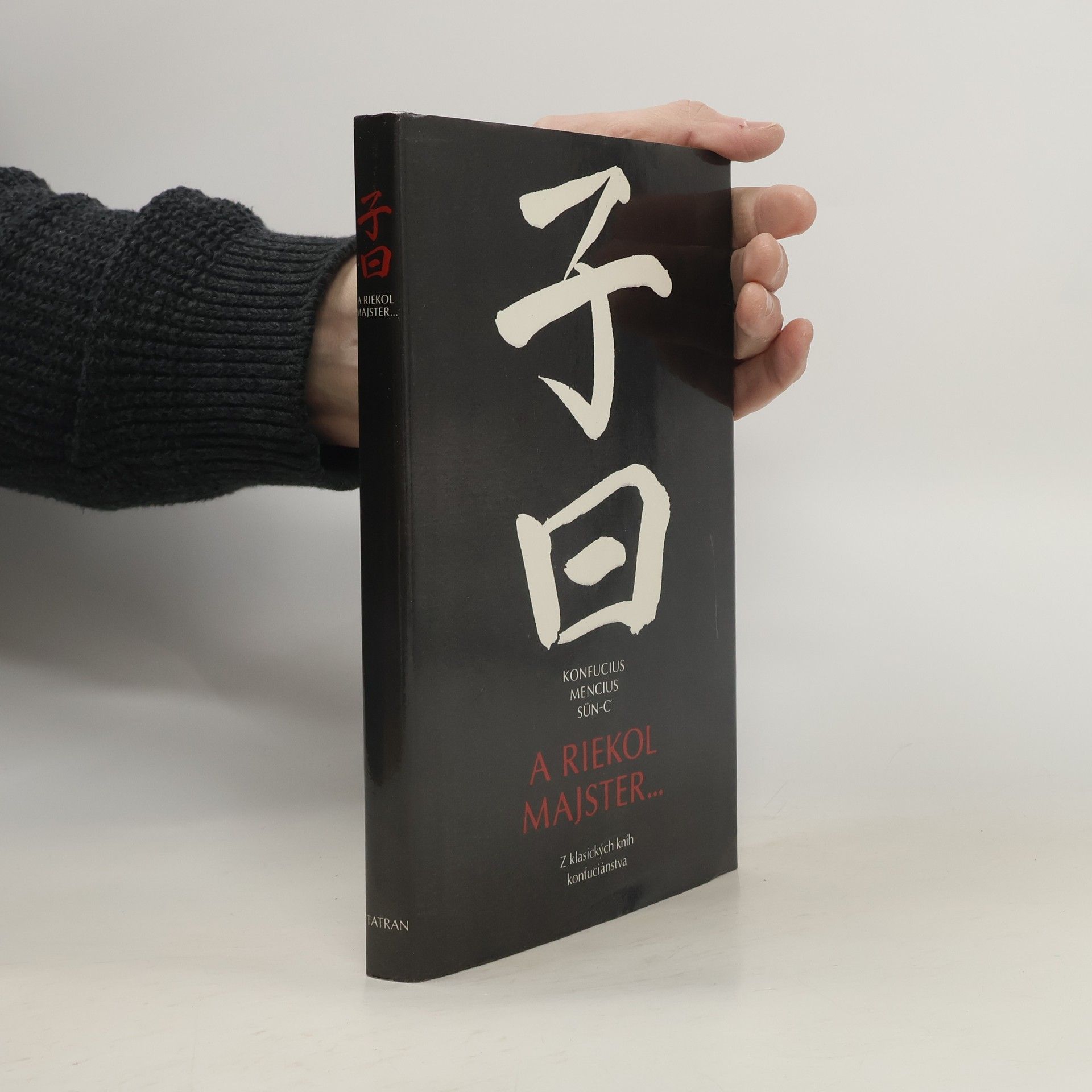Z klasických kníh konfucionárstva. Zbierka výrokov a rozhovorov Konfucia s jeho žiakmi a súčasníkmi. Datovanie zbierky je neisté, podla výskumov vznikla v období okolo roku 400 pred n.l., teda približne 70 rokov po jeho smrti.
Xunzi Knihy


Z klasických kníh konfuciánstva. Zbierka výrokov a rozhovorov Konfucia s jeho žiakmi a súčasníkmi. Datovanie zbierky je neisté, podla výskumov vznikla v období okolo roku 400 pred n.l., teda približne 70 rokov po jeho smrti.